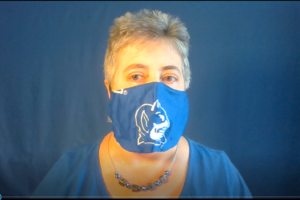
Pay Attention to Your Mental Health in Times of Transition
Even if your life is not in transition for other reasons, COVID-19 has certainly brought change to all of us, even now, as we make attempts to return to “normal” life. This time of stress has brought more awareness to the topic of mental health. Mental health is talked about far less than our physical ailments. We feel more comfortable talking about our sprained ankle or bout of bronchitis than we do sharing our eating disorder how we cope with depression. We might laugh off our anxiety with Instagram jokes about drinking wine.
One in four U.S. adults has a diagnosable mental health disorder. That’s 25 percent. Someone you know is struggling, probably in silence. The stigma is still out there that people with mental health problems are dangerous or “crazy.”
Signs of Transition Trouble
Sometimes, like bronchitis, this mental ailment is temporary, a byproduct of life’s stress or situations. As we talk about life transitions here, we often refer to stress and anxiety. After all, during times of transition, we’re apt to feel different. Things aren’t “normal,” they are in flux. Things are changing. We’re trying to adapt, get a grip on things, cope with strong emotions. Getting through each day might feel like climbing a mountain.
People often feel awkward about asking for help with mental health. We don’t mind calling our physician but we’re far more nervous when debating whether to see a therapist. If your life is in transition, you might need a mental health break. According to Dr. Laura Hamill, here are the signs you need a break:
-
You can’t focus.
-
Your relationships are suffering.
-
You’re showing physical signs of stress.
-
Your self-care no longer exists.
-
You’re running on empty.
Those signs probably sound familiar. In life, at one time or another, we go through challenging times. It’s OK to seek help from a therapist temporarily. Doing so is finding the help you need, when you need it, like calling your doctor about that strange pain in your shoulder. If you’re not ready for that step, check out this list of useful tips to boost your mental health from Mental Health America.
We help people with organizational challenges during a life-disrupting transition. Using our proven methodology, clients discover new skill sets that empower them to save time and money, as well as enjoying better health. Contact us and discover how our virtual coaching services will help you gain control of what once felt uncontrollable.
Tag:Coronavirus, mental health



